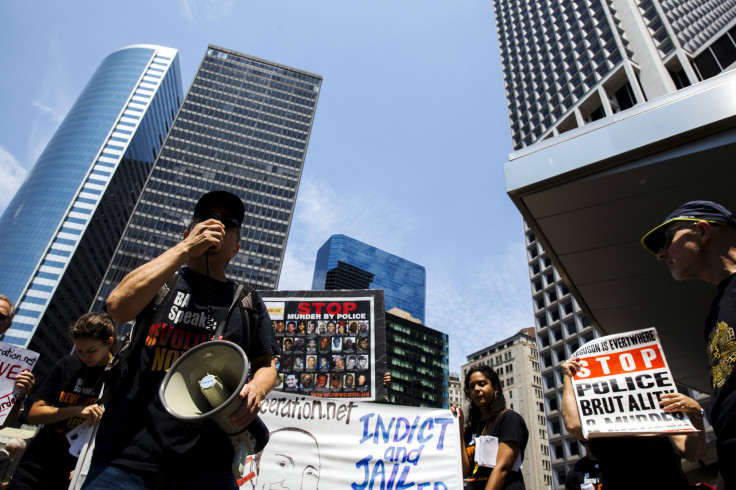Eric Garner Grand Jury Records: New York Appeals Court Denies Release Of Transcripts In Unarmed Black Man's Death

On Wednesday, an appeals court in New York declined a second appeal to release transcripts from the grand jury trial in the case of Eric Garner, the unarmed black man killed in Staten Island last summer by a New York City police officer, according to a New York Times reporter. Garner's death drew outrage after a video showing him being strangled by the officer surfaced online.
In the video, Garner wheezed "I can't breathe" after a confrontation that was originally nonviolent with the officers, one of which put him in a chokehold and pulled him to the ground. The police were speaking to Garner because he was selling loose cigarettes on the street. Garner reportedly had asthma. New York City recently reached a $5.9 million settlement with the Garner family over Eric Garner's death at the hands of the New York City Police Department.
Appeals court in New York denies appeal to release transcripts from the grand jury in the Eric Garner case. Story TK
— J. David Goodman (@jdavidgoodman) July 29, 2015Grand Jury transcripts can be kept secret so that jurors in similar, future trials will not feel intimidated by an open format. The secrecy, however, has spurred outrage from those who see the grand jury trials as a way to circumvent regular avenues of justice for police officers, who generally enjoy strong protections from murder charges. African-Americans are killed at a much higher proportion by police officers than other ethnic groups.
Garner's death is one of a string of high-profile killings of unarmed black men at the hands of police officers around the country that have sparked a national debate about police brutality and racial politics. In less than two weeks, the anniversary of the death of Michael Brown, an 18-year-old who was stopped while jaywalking and ultimately shot by an officer in Ferguson, Missouri, will take place. The trial of the officer in the Brown death also did not make it past a grand jury trial.
A petition sent to the White House asking for federal charges to be filed against Darren Wilson, the officer who shot Brown, was denied on Tuesday. The White House said that the executive branch does not get involved directly in those decisions.
© Copyright IBTimes 2024. All rights reserved.












